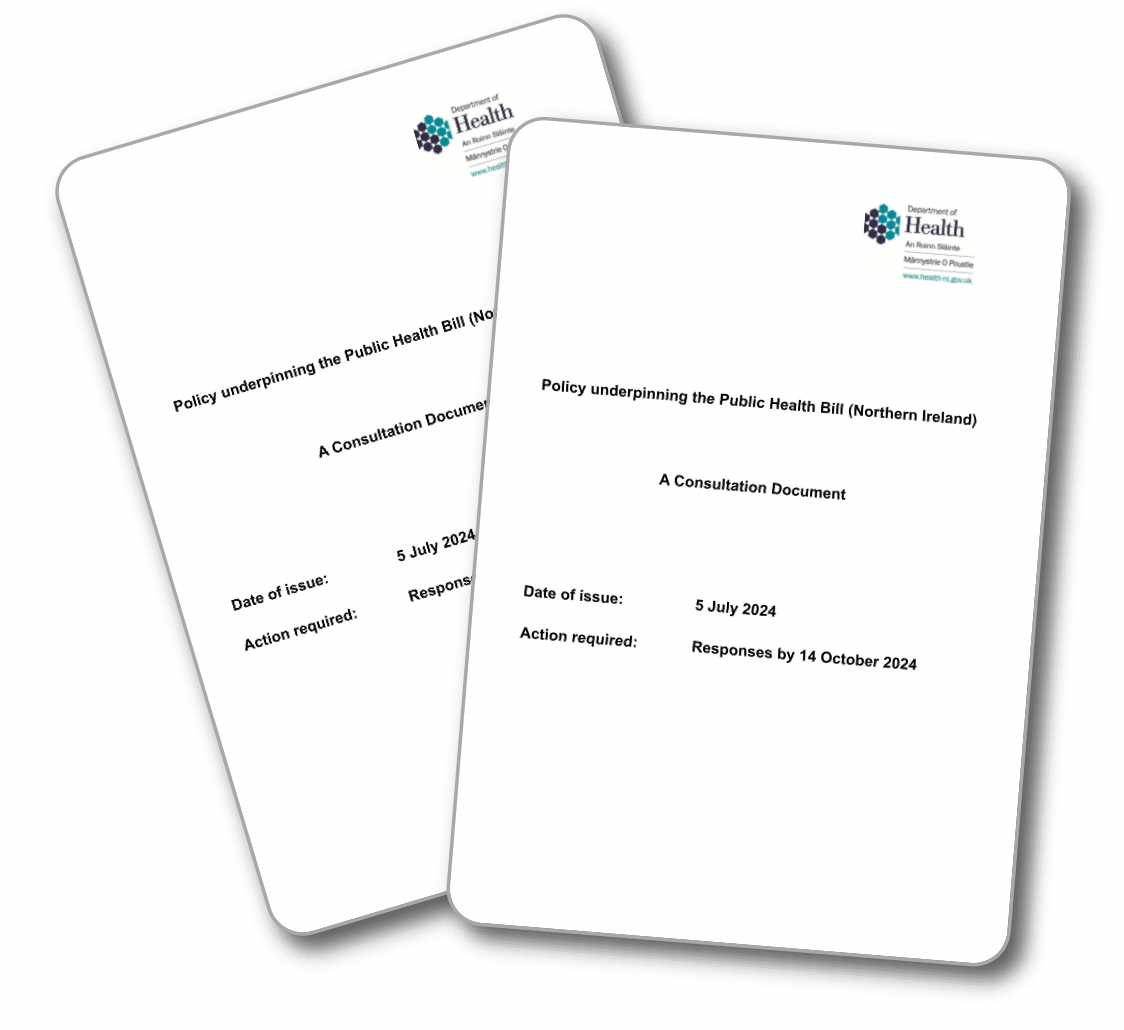Towards a new Public Health Act

A public consultation on a prospective replacement public health bill has now closed amid much recrimination from within the Executive and beyond. Whether it results in new legislation within the remaining mandate of this Assembly mandate is questionable.
Following a review of the current Public Health Act (Northern Ireland) 1967, it was determined that the legislative framework for public health should be updated to respond to modern public health emergencies.
As such, Policy underpinning the Public Health Bill (Northern Ireland), a 79-page consultation document was published by the Department of Health in July 2024, remaining open to public consultation until mid-October 2024.
This follows the framework provided by the Department of Health’s March 2016 review of the existing legislation, which concluded that “the 1967 Act is deficient in a number of respects”. Among its 18 proposals, the previous review recommended that “the Executive should include a public health bill in its legislative programme for the next Assembly mandate” as an “entirely new piece of legislation”.
Now, in his July 2024 foreword to Policy underpinning the Public Health Bill (Northern Ireland), Minister for Health asserts: “The overarching principle of the draft Bill is to protect the population against various forms of infection and contamination including biological, chemical and radiological, in addition to infectious diseases.
“This all-hazards approach will enable broader surveillance, supporting more timely and effective interventions, controlling the further spread of infection and contamination.”
On top of this, the summary recommendations of the proposal document indicate that the new legislation should:
• update specific powers in relation to restrictions on employment, quarantine, isolation, and medical examination;
• detail the roles and responsibilities of relevant authorities; and
• determine the “underlying human rights-based principles” guiding the implementation of “powers of intervention”.
Fact sheet
Given the significant public interest generated by the consultation, the Department of Health subsequently published a ‘fact file’ at the beginning of October 2024 to address “some misunderstandings” surrounding the document.
In this fact sheet, the Department emphasises:
- existing public health legislation is obsolete;
- a public health bill has yet to be published (though this contradicts the document’s foreword);
- public health powers relating to households, businesses, and schools already exist and are rarely applied;
- individual rights would be protected by comprehensive safeguards;
- existing legislation already provides for infected persons to be detained via a magistrates’ court order; and
- the Health Minister is opposed to mandatory vaccination.
Extension
In late September 2024, amid significant public interest – and what the Minister referred to as “some misunderstanding” – the consultation was extended by two weeks, with emphasis placed on the subsequent Assembly scrutiny that any resulting draft legislation would face.
“I am determined that the planned ill will strike the correct balance between the state’s responsibility to protect the public’s health, our collective responsibility to protect each other, and the autonomy, rights and dignity of individuals,” he said.
Later, upon the closure of the consultation, the Minister insisted: “Public health interventions require legal backing, he says, adding: Unless we are to seriously argue that individuals have the right to knowingly or unknowingly cause biological, chemical and radiological contamination or otherwise put the health and lives of others at risk.”
Next step
Following the closure of the consultation, the Minister acknowledged that “the public consultation on a proposed new public health bill was always going to be controversial” and suggested that it had “aggravated the scars” imprinted by the Covid-19 pandemic and associated public health measures.
Now, the consultation responses must be evaluated before a public health bill is drafted. “Then it will fall to me to bring forward a bill and seek Assembly support. I look forward to further robust debate, which will offer opportunities for amendments which remove proposals and add others,” the Minister explains.
Indeed, the “robust debate” is already well underway and will continue for some time. For example, in an oral response to the SDLP’s Colin McGrath MLA during an Assembly questions session in October 2024, Nesbitt indicated that he had “not yet had a briefing on the number of responses” and added: “No bill has been written, and the Bill’s composition will be dictated to an extent by the public’s reaction to that consultation process. However, it will also be up to the Assembly and the Committee for Health to decide the shape of the Bill.” The Minister also remarked that he is “personally not in favour of forced vaccinations”.
Likewise, in a written response to the DUP’s Stephen Dunne MLA, who queried the timescale between the reviewing the public consultation findings and formulating a new public health bill, Nesbitt was reticent.
“My department have received a high volume of responses,” he said, adding: “The process to consider the responses has commenced, the timeframe to complete this review, given the high volume of responses, is still under consideration.”
Criticism
However, the Minister’s consultation document came under criticism from several quarters, not least from his Executive partners. Referencing her party’s response to the consultation, Sinn Féin health spokesperson, Liz Kimmins MLA, says: “Any proposals from the health department for a new public health bill must be consistent with people’s human rights and equality requirements.
“The absence of both an Equality Impact Assessment and a Human Rights Impact Assessment from this consultation document is a serious and unacceptable omission.
“The Department of Health’s proposals and the consultation are not fit for purpose and Sinn Féin does not support the approach being pursued by the Minister for Health.”
Likewise, the DUP accused the Department of Health of “huge overreach” and published its seven-page response to the consultation. The party’s health spokesperson, Diane Dodds MLA, asserts: “The Health Minister’s refusal to scrap this consultation – despite bizarrely distancing himself from some of its most divisive elements – has undermined public confidence…
“We do not believe the proposals currently under consideration strike a fair balance between fulfilling public health objectives and defending personal liberty… All of this represents a huge overreach and must be rejected. The Department must go back to the drawing board.”
However, speaking with the BBC Radio Ulster’s Evening Extra, Chair of the British Medical Association (BMA) Northern Ireland, Alan Stout asserted that the proposed legislation “is very broad reaching” and should not examined “simply through the lens of Covid or actually vaccination itself”.
In the meantime, given the scrutiny that lies ahead, it remains to be seen whether the Executive can formulate a new legislative framework for responding to a future public health crisis, in a timely manner. Certainly, in the absence of a indicated timeframe, this journey – which began in 2015 – is likely to be an odyssey.






